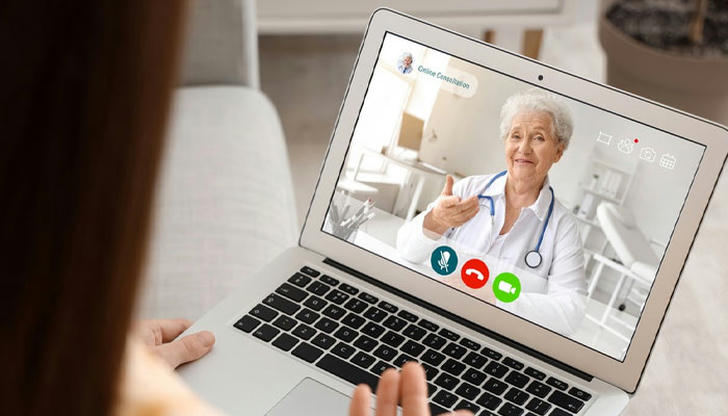Can You Trust Online Health Advice?
🥗 Introduction: Diets in 2025 — What’s Really Working?
In the digital age, millions of people turn to the internet for health-related information. With just a few clicks, you can read about symptoms, medications, diets, or natural remedies. But how reliable is the advice you find online?
This article explores the risks and benefits of online health advice, how to recognize credible sources, and when to seek professional help.

The Rise of "Dr. Google" 🧑⚕️💻
According to a Pew Research study, 77% of people use search engines to look up health concerns. From common colds to serious diseases, the internet has become a virtual doctor for many.
Why People Rely on Online Health Information:
- Convenience and instant access
- Avoiding the cost of a doctor visit
- Curiosity or anxiety about symptoms
- Desire for natural or alternative treatments
But relying solely on internet advice can be dangerous, especially when it delays real medical care.
The Dangers of Unverified Health Content ❌
1. Misinformation and Fake Cures
Some sites promote false or misleading claims about treatments, diets, or supplements.
- Example: Claims that vitamin megadoses cure cancer
- Example: "Detox teas" marketed as medical solutions
Red flag: Sites promising quick fixes or miracle cures.
2. Self-Diagnosis Can Be Harmful
Using symptom checkers or reading forums may lead to wrong conclusions, causing panic or false reassurance.
- Mistaking a heart attack for indigestion
- Ignoring a lump thinking it's just a muscle knot
3. Scare Tactics and Clickbait
Titles like “This One Symptom Means You Have Cancer!” are designed to generate ad revenue, not provide medical truth.
4. Personal Data Risks
Some unregulated health websites may collect private health information and sell it to advertisers.
What Makes a Source Trustworthy? ✅
| Trustworthy Source Characteristics | Red Flags to Watch For |
|---|---|
| Backed by experts or institutions | No author listed |
| Uses research and citations | Sensational headlines |
| Updated regularly | Outdated content |
| Transparent about purpose | Promotes products aggressively |
Reputable Health Websites Include:
- Mayo Clinic
- WebMD (with doctor review)
- CDC.gov
- NIH.gov
- Healthline (check author credentials)
Tips to Evaluate Online Health Content 🔍
1. Check the Source
- Is it written or reviewed by a licensed medical professional?
- Is the website affiliated with a hospital, government agency, or medical school?
2. Look for Peer-Reviewed References
- Reliable articles cite clinical studies or published research.
3. Beware of Emotional Language
If a health article uses a lot of fear, exaggeration, or urgent phrases like "Doctors HATE this trick!"—it’s likely not trustworthy.
4. Watch for Conflicts of Interest
- Does the site sell products related to the content?
- Are the authors also trying to promote their services?
When Online Advice Can Be Useful 🧠
- Understanding general health topics (e.g., what is hypertension)
- Getting tips on diet, sleep, or wellness
- Preparing for a doctor visit (so you can ask informed questions)
- Monitoring chronic conditions with guidance from credible sources
When to See a Real Doctor 👨⚕️🚑
- Persistent, worsening, or severe symptoms
- Chest pain, unexplained weight loss, or abnormal lumps
- High fever, difficulty breathing, or confusion
- Any condition that affects your ability to function normally
Online advice should support, not replace, professional medical care.
The Role of AI in Health Advice 🤖
AI tools like symptom checkers and chatbots are growing in popularity. While some are backed by medical databases, others are not. AI can help you:
- Learn possible causes of symptoms
- Understand medical terminology
- Navigate health decisions
However, AI is not a substitute for diagnosis, especially in complex or urgent situations.
Summary Table: Good vs. Bad Health Info
| Criteria | Reliable | Unreliable |
|---|---|---|
| Author | Doctor, RN, or health org | Anonymous or influencer |
| Tone | Informative and neutral | Alarmist or overly positive |
| Citations | Peer-reviewed studies | No references |
| Updates | Recent and reviewed | Outdated or vague |
Final Thoughts
The internet can be a helpful tool for health education, but it must be used wisely. Misleading or false advice can endanger your well-being, waste time, and cause anxiety.
Look for credible sources, expert opinions, and evidence-based guidance. And when in doubt, talk to a real doctor — no article or algorithm can replace trained medical judgment.
References
- Pew Research Center
- Mayo Clinic Health Library
- CDC: Evaluating Health Information Online
- NIH: MedlinePlus Consumer Health
Use the internet for health awareness — not for self-diagnosis. 🩺💡
